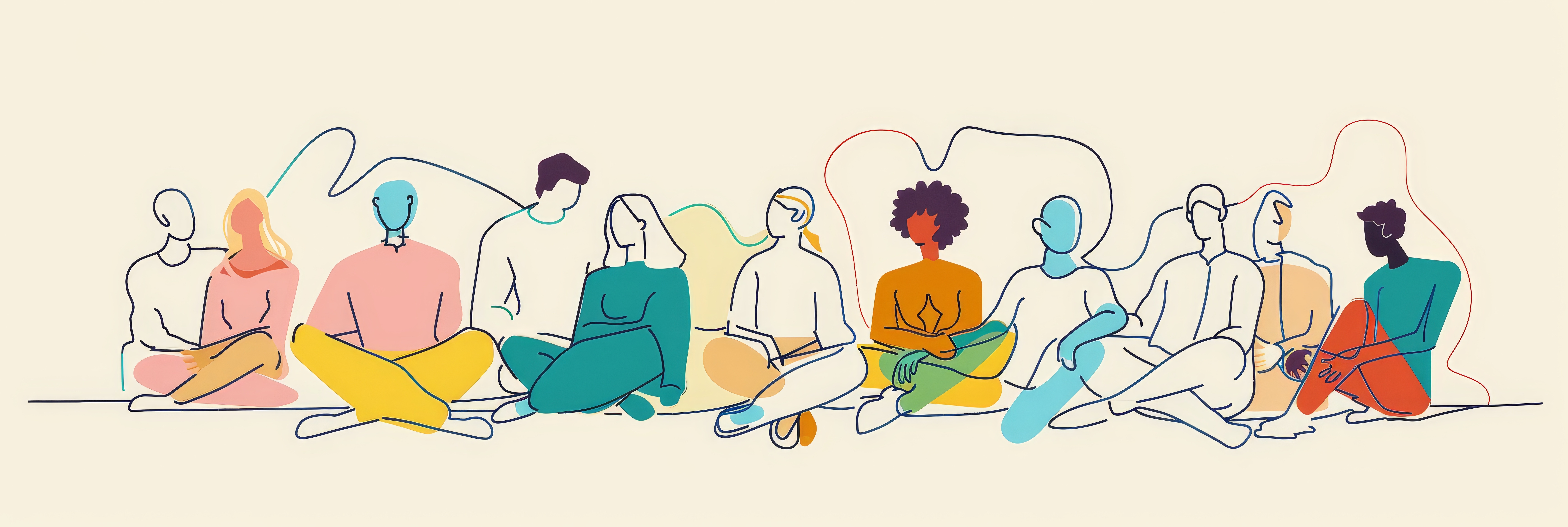Body positivity has gained media attention over the past several years as an alternative to the seemingly constant flow of weight loss content from previous decades. For teens, body positivity and self-esteem are essential aspects of eating disorder prevention and recovery.
The Importance of Body Positivity
The movement to embrace diversity is a necessary shift in a culture that historically has had a very narrow definition of beauty. Healthy teen body image can also help improve their physical and psychological well-being.
Defining body positivity and its significance for teenagers
Body positivity is a broad term that describes mindsets that promote a healthy relationship with one’s body. While there is not one concrete definition to encapsulate positive body image, researchers believe that the concept can be summarized by the following qualities:1
- To accept, and even love, one’s body, including aspects that may not align with a culturally idealized image of beauty
- To appreciate the uniqueness of their own body and how it serves them
- To be happy, confident, or “glowing” in the body one has
- To focus more on the benefits of one’s body than aspects they would like to change
- To be able to filter outside information in a manner that protects their body image, including internalizing messages that benefit their body image and rejecting those that are harmful to their view of self.
Body positivity can also help improve self-esteem in teens. Rather than spending their thoughts and energy trying to change their appearance to fit one specific look, teens can embrace and celebrate their natural traits.
The impact of societal beauty standards on teens’ self-esteem
Teens who do not believe they fit their culture’s beauty standards may feel pressured to change their bodies to be accepted by their peers and loved ones. However, their body may not be healthiest at the size they want to achieve. Additionally, many of their body features are impossible to change, such as their bone structure or genetically predetermined weight. This can negatively impact a teen’s self-esteem, especially as they are adjusting to a changing body.
Identifying Low Self-Esteem
Low self-esteem usually begins as an internal battle for their value as a person. This inner struggle may become noticeable to others through changes in their behavior.
Common signs and behaviors indicating low self-esteem in teenagers
It is important to be aware of warning signs of low self-esteem in teens. These may include, but are not limited to:
- Social isolation
- Fear of disappointing others
- Difficulty forming and maintaining friendships
- Negative self-talk
- Constant apologizing
- Negative body image
Signs of low self-esteem in teens may vary significantly. While some adolescents may constantly try harder to feel valued by peers, others may seem to stop trying.
Real-life examples illustrating low self-esteem in teens
For example, one teen girl who is struggling with low self-esteem may become increasingly isolated from her peers, fearing that she will be rejected. She may walk with her head down and avoid eye contact with others.
Another teen with low confidence may crave validation from others. Her behavior may seem overly dramatic, and she longs to have the attention of others. This may also lead to risky behaviors, such as self-harming.
It is important for parents, teachers, and loved ones to notice these signs of low self-esteem early so that teens can get the help that they need.
Fostering Body Positivity
Just like how body image can be negatively impacted by societal standards, loved ones can take actionable steps to promote body positivity in teens.
Practical ways for parents, educators, and mentors to encourage body positivity in teens
Adults can promote body positivity and self-esteem in teens with their word choice. Many adults wrestle with their self-image, but it’s important not to voice these concerns in front of teens. Likewise, making negative comments about other people’s bodies, performance, or personalities can unhealthily shape a teen’s view of self.
Tips for creating a supportive and open environment for teens
- Tell your teen what you love about them that has nothing to do with their appearance.
- Avoid talking about your teen’s weight or food choices.
- Validate your teens when they are struggling with body image.
The Self-Esteem-Body Image Connection
There is a clear relationship between body positivity and self-esteem for teens. Research indicates that body dissatisfaction can have a negative impact on self-esteem. Poor body image and self-esteem are also associated with higher rates of anxiety and depression among teens.2
Exploring the relationship between self-esteem and body image
Healthy self-esteem plays a key role in developing body image in teens. Research shows that self-esteem has a positive influence on school, work, physical health, and relationships.3
Actionable advice for boosting self-esteem in teenagers
Worried parents do not have to sit aside while they watch their teen’s self-esteem worsen. Loved ones can offer practical help to teens who need help building confidence and understanding their identity.
- Encourage teens to try new experiences.
- Help teens learn how to navigate conflict and form healthy relationships.
- Teach your teen how to advocate for themselves and their needs.
Understanding Media’s Role
Media plays a significant influence on cultural standards of health and beauty. According to a recent poll, teens spend an average of 4.8 hours per day on screens.4 Understanding the media’s influence on body image can help parents know how to protect their teens.
The influence of media on shaping body image perceptions
Photoshop, lack of diversity, and cultural beauty norms perpetuated by media can all hurt body image. Media often shows actors or models with similar physical features, which can send the message that this is the “normal” or “ideal” body. However, this may be unachievable or an unhealthy body size for most people.
Strategies for teaching media literacy and critical thinking skills to teenagers
Teach your teen to take a closer look at the media they ingest. A few things to watch for:
- Size and cultural diversity within the media
- Triggering weight-centric images, such as before-and-after photos
- Practicality and sustainability of promoted wellness trends
Encouraging a Balanced Lifestyle
A common misconception about body positivity is that it completely disregards one’s health. While positive body image may place less emphasis on weight loss or aesthetic changes, it also empowers teens to care for their bodies well. This includes regular movement, eating nutritious foods, prioritizing sleep, and building healthy social connections.
Emphasizing the importance of a balanced and healthy lifestyle
Caring for one’s body does not mean that one has to go to extremes. Self-esteem also includes the belief that one deserves to take care of their body, regardless of their appearance or performance.
Guidance on nutrition, exercise, and self-care practices
- Keep a variety of foods available at home
- Avoid labeling foods as “good” or “bad”
- Find enjoyable ways to incorporate exercise into your family’s routine, such as taking a walk in the evenings
- Encourage your teen to stay hydrated
- Talk to your teen about self-care practices outside of food and exercise, such as maintaining personal hygiene and building healthy friendships
The Role of Supportive Relationships
Positive social experiences can empower teens with healthy self-esteem. Like most skills, teens need support to understand how to build and maintain healthy relationships. This can help improve their self-esteem now and equip them with positive social skills that will serve them well into adulthood.
How friends, family, and peers can contribute to building body positivity
Loved ones can play a pivotal role in improving one’s body image. Teens are influenced by the world around them. If they are constantly hearing their family or peers talking about dieting, weight loss, or body dissatisfaction, adolescents often feel the need to engage in these behaviors as well.
Alternatively, loved ones can talk about aspects of one’s personality that have nothing to do with their body. Teens can feel empowered and loved when family and friends encourage positive qualities such as kindness or determination.
Even telling teens that you enjoy spending time with them can help build healthy self-esteem as this helps separate a teen’s worth from their appearance.
Tips for creating a supportive community for teens
- Avoid making comments about your body (or anyone else’s body) in front of your teen.
- Encourage opportunities for healthy social interactions with peers.
- Help teens find activities that build positive self-esteem.
- Encourage teens to eat when they are hungry.
- Be intentional about including a variety of foods into your family’s routine, such as having pizza every Friday night or ice cream after their softball games.
It can be challenging to know how to support your teen when they are struggling with body image. Building body positivity and self-esteem for teens is an essential aspect of eating disorder treatment. Working with a mental health professional who specializes in eating disorders can empower your teen to find their worth, regardless of how they feel about their body. To learn more about treatment at Selah House, contact us at 866-324-8081.
References
- https://pubmed.ncbi.nlm.nih.gov/25921657/
- Body dissatisfaction and psychological distress in adolescents: Is self-esteem a mediator? – Annie-Pier Duchesne, Jacinthe Dion, Daniel Lalande, Catherine Bégin, Claudie Émond, Gilles Lalande, Pierre McDuff, 2017 (sagepub.com)
- APA PsycNet FullTextHTML page
- https://news.gallup.com/poll/512576/teens-spend-average-hours-social-media-per-day.aspx

 Call
Call

